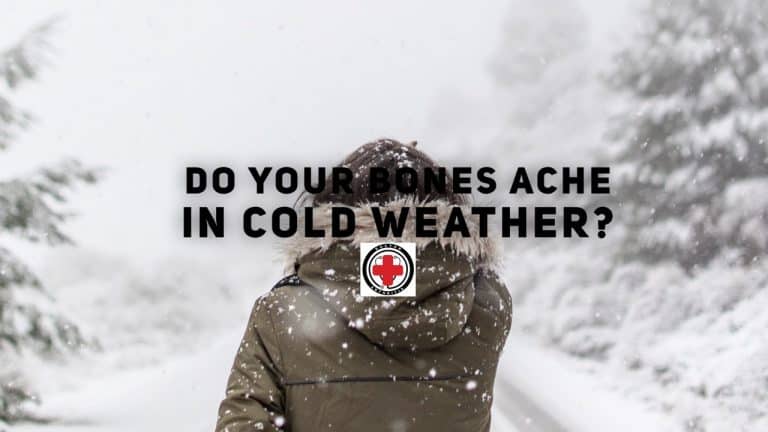With over 1 million orders

DR. ARTHRITIS ASKS: DO YOUR BONES ACHE IN COLD WEATHER?
A few days ago, a polar vortex caused US cities to become colder than Antarctica, Alaska, and Siberia. Amid this unexpected and historic winter phenomenon, it seems as good a time as any to talk about how much cold weather really affects joint pain. If you ask yourself, “do your bones ache in cold weather?” What would the answer be?

What science says…
To date, there’s a big debate as to whether cold and damp weather increases our susceptibility to arthritis symptoms like pain.
Last year, a 2018 study used smartphones to gather data on self-reported pain levels in the context of local weather data. While final results have yet to be published, initial research already shows that there’s a correlation between poor weather conditions and increased joint pain.
However, a 2017 study found no direct effect between increased rainfall and joint or back pain. In the study, investigators concluded that “the tendency of people to perceive patterns where none exist” may explain the persistent belief that joint or back pain is associated with rainfall.”
What your body tells you…
Anecdotally however, most, if not all, will say that colder weather will almost instantly guarantee stiffer and more painful joints.
Arthritis affects people all year round, but more so when rainy season starts, and especially when winter sets in. In fact, a study involving people who dealt with chronic pain showed that 67.9 percent of the subjects were sure the weather had an effect on their pain. Most note a change in the level of their pain even before the rain pours or the breeze blows colder.
How? Further scientific speculation believes barometric pressure or atmospheric pressure may have something to do with it. The force exerted onto a surface by the atmosphere is greatly felt on bones and joints that are already more sensitive due to conditions like arthritis. So when the weather changes, and the temperature begins to drop, the barometric pressure drops as well, thus affecting arthritic bones and joints.
Either way…
It’s important to remember that awareness about your arthritis symptoms is the key to managing your illness better. So read up and learn about what you can do – and rest assured that whether or not your bones ache in cold weather, you have numerous options that you can try.
